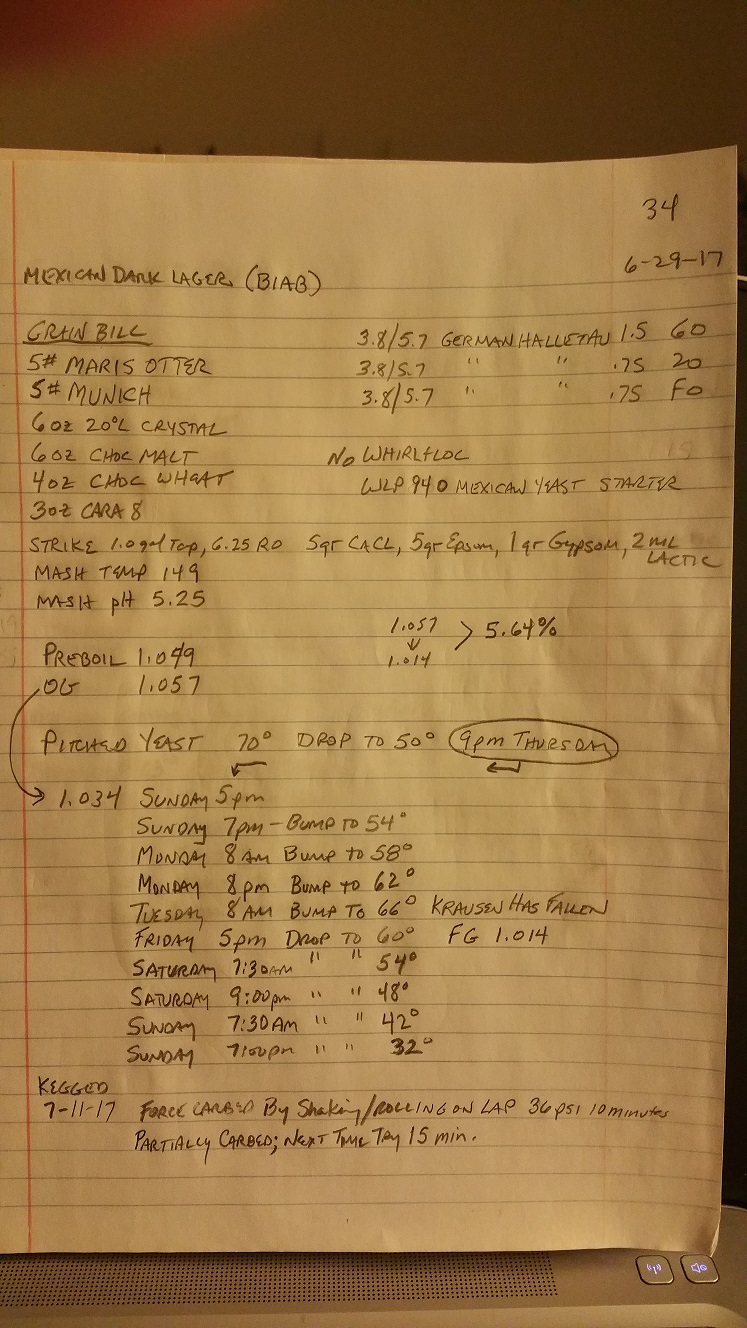Hello everybody! First time poster, first time brewer.
I've seen several comments about keeping detailed notes every time you're brewing.
I brewed my first batch a month ago today and my second batch (exact same recipe) nearly 2 weeks ago now.
Thankfully, I kept notes throughout the process both times but I guess I'm not sure if I'm keeping the right kinds of notes.
Any ideas on specific things i should be looking for/ monitoring/ controlling etc that I should be keeping notes on?
Thanks
I've seen several comments about keeping detailed notes every time you're brewing.
I brewed my first batch a month ago today and my second batch (exact same recipe) nearly 2 weeks ago now.
Thankfully, I kept notes throughout the process both times but I guess I'm not sure if I'm keeping the right kinds of notes.
Any ideas on specific things i should be looking for/ monitoring/ controlling etc that I should be keeping notes on?
Thanks



